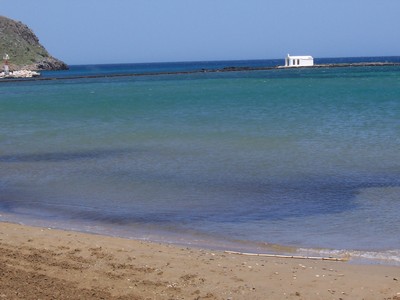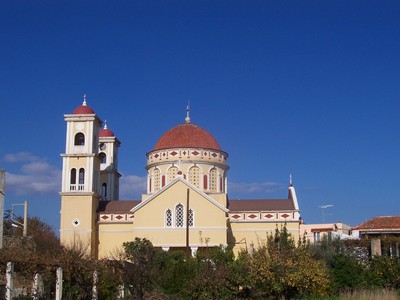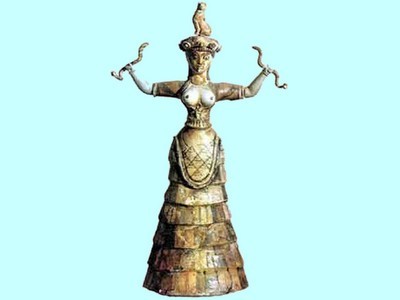Crazy about the Greek island of Crete!
Death in Crete
The following is produced by the British Embassy in Athens and can be useful for dealing with a death in Crete.
Deaths involving British nationals in Greece
The death of a relative or friend is always distressing. But if it
happens abroad the distress can be made worse by practical problems.
Consular Directorate in the Foreign and Commonwealth Office and our
Consulates in Greece are ready to help in any way that they can. You may
be uncertain what to do next or who to contact for advice. These notes
are designed to help you through the practical arrangements you will
need to make.
You should be aware that Greek procedures differ significantly to those
in the United Kingdom. While we understand your need to make
arrangements as quickly as possible, this may not always be possible.
Standard Procedures
Following the death of a British national in Greece, next of kin, or a
formally appointed representative, must decide whether to repatriate the
deceased to the UK, or carry out a local burial. Cremation is not
available in Greece. Consular staff in London will pass on to the
Consulate overseas the wishes of the next of kin about disposal of the
body. We will do our best to ensure these are carried out.
Under Greek law, a deceased person must be buried within one month of death. However, in the case of foreign nationals the authorities will normally allow as much time as necessary. The death must however be registered within 3 days.
If the deceased was covered by travel insurance, it is important
for next of kin to contact the insurance company without delay. If there
is no insurance cover, the cost of repatriation or burial will need to
be met by the family. Neither the Foreign and Commonwealth Office nor
our Consulates in Greece have budgets to meet these costs.
It is important to remember that if the deceased was travelling with a
tour operator, they can be a valuable source of assistance and advice.
Repatriation
If the deceased was covered by travel insurance, the insurance company
will normally appoint an International funeral director to arrange
repatriation. If the deceased is not covered by insurance, next of kin
will need to appoint an International funeral director themselves. A
list of companies is attached to the back of this document. The
International funeral director will liaise with local undertakers to
ensure that all necessary requirements are met in Greece.
When the deceased is to be repatriated, the remains must be embalmed and placed in a zinc-lined coffin. Local undertakers in Greece are equipped to carry out these procedures. A local civil registry death certificate, plus the doctor's death certificate (indicating cause of death), a certificate of embalming, and a certificate giving permission to transfer the remains to the UK is required to ship the body. This will be arranged by the international funeral director.
In certain circumstances repatriation may not always be possible.
Our consular staff will try and inform next of kin as soon as possible
if this is the case.
Local Burial
If next of kin choose to proceed with a local burial, they will need to
instruct a local funeral director. Our Consulates in Greece can provide a
list of funeral directors on request, including indications of costs,
and can help with practical arrangements.
Inquests
In the event of a death in Greece, the Examining Magistrate will
consider the evidence. If the circumstances of the death were not
unusual, registration of the death is permitted and the body will be
released for repatriation or burial. However, if the Examining
Magistrate is not satisfied after the preliminary examination, an
autopsy may be required. Further investigations and interviews with
witnesses may also be called for before a decision is made as to cause
of death.
In cases of accident or misadventure, a report of the Examining
Magistrate’s findings will be issued and experience has shown that this
can take several months. However, if death was caused by a criminal act,
the police will be ordered to conduct a full investigation. The State
Prosecutor will then decide whether to prosecute.
Autopsies
Autopsies are carried out by court appointed doctors with forensic
qualifications. During an autopsy, organs can be removed for testing at
the discretion of the doctor, without consent of next of kin. Next of
kin are not informed about the removal of any organs. The deceased’s
body can be buried or returned to the UK before tests on removed organs
are completed. Any organs removed are retained for the duration of the
tests, after which they are destroyed.
Should the next of kin have a request that any organs removed are
returned they must apply for a court order. The British Embassy Athens
can advise on the procedures to be followed. If the deceased’s body has
been repatriated, next of kin should contact their undertaker in the UK
to proceed with the request for the return of any organs removed.
Organs cannot be removed for any purpose other than testing without
prior consent of the deceased (for research) or next of kin
(transplants).
UK Coroners
When a body is repatriated to England or Wales, a coroner will hold an
inquest only if the death was violent or unnatural, or if the death was
sudden and the cause unknown. In some countries the cause of death is
not given on the death certificate, and coroners do not generally have
access to judicial files from other countries. Consequently coroners may
order a post-mortem as part of the inquest. If a post-mortem is also
performed in the UK, the coroner might be able to advise you if any
organs have been removed.
Coroners can request copies of post-mortem and police reports from the Greek authorities. Our Embassy in Athens is able to channel coroners’ requests through to the Greek Ministry of Foreign Affairs. However, the reports will only be provided once any judicial proceedings are completed. In some instances this can take many months.
In Scotland, the Scottish Executive is the responsible authority. However, they are not obliged to hold an inquest into cause of death.
Coroners in Northern Ireland are also not obliged to hold an
inquest into cause of death. However, next of kin can apply for a
judicial review if no inquest is held.
Release of Information
Access to information concerning a death, post-mortem and police
reports, is restricted. The Greek authorities will not normally provide
this information directly to next of kin, or to third parties including
our Consulates. Requests for this information should be made through a
legal representative. Our consular staff can provide lists of English
speaking lawyers throughout Greece. The release of any information can
take many months, and the documents will be in Greek.
Legal Aid
British nationals without the available means to appoint legal
representation can apply for legal aid in most European countries. The
Legal Services Commission in London (tel: +44 20 7759 0000) is
responsible for legal aid applications overseas. The Legal Services
Commission currently forwards applications for legal aid to their
counterparts in Greece, where cases will be considered for their
eligibility (based on Greece’s criteria).
Consular Death Registration
There is no obligation for the death overseas of a British national to
be registered with the British Embassy. However, there are the
advantages that a British form of death certificate is then available,
and that a record of the death is afterwards held at the General
Register Office in the UK.
To apply from within the UK, you should contact Nationality and
Passports Section of Consular Directorate, Old Admiralty Building,
London SW1A 2AF Tel: +44 20 7008 0186. If you are applying from Greece,
you should contact the nearest Consulate.
Contacts
Consular Directorate - Foreign and Commonwealth Office
Greece and Greek Islands Desk
Tel: +44 20 7008 0141
Information on Death Registration
Death registration is optional, however, if it is required, the following original documents should be produced:
· Greek death certificate
· Passport
There is no time limit before which the registration must be effected. Copies are sent to the General Register Office at Southport and a copy is kept at the Consulate for reference. The cost of registration plus one certified copy of the death certificate is 223.00 Euro.
Approximate waiting period for processing application and issue of certificate(s) is 3 working days.
Want to discover even more of what Crete has to offer?
Explore hidden gems, must-visit spots, and insider tips below!
Just Some of the Reasons We Love Crete
Did you love this page? Please share it with your friends!
© Copyright All Original Content 2006 - 2025 Completely-Crete.com. All
Rights Reserved. Reproduction in whole or in part without permission is
not permitted.
Click here to learn about developing your own money-generating website
from Solo Build It! - even with little or no web experience!























